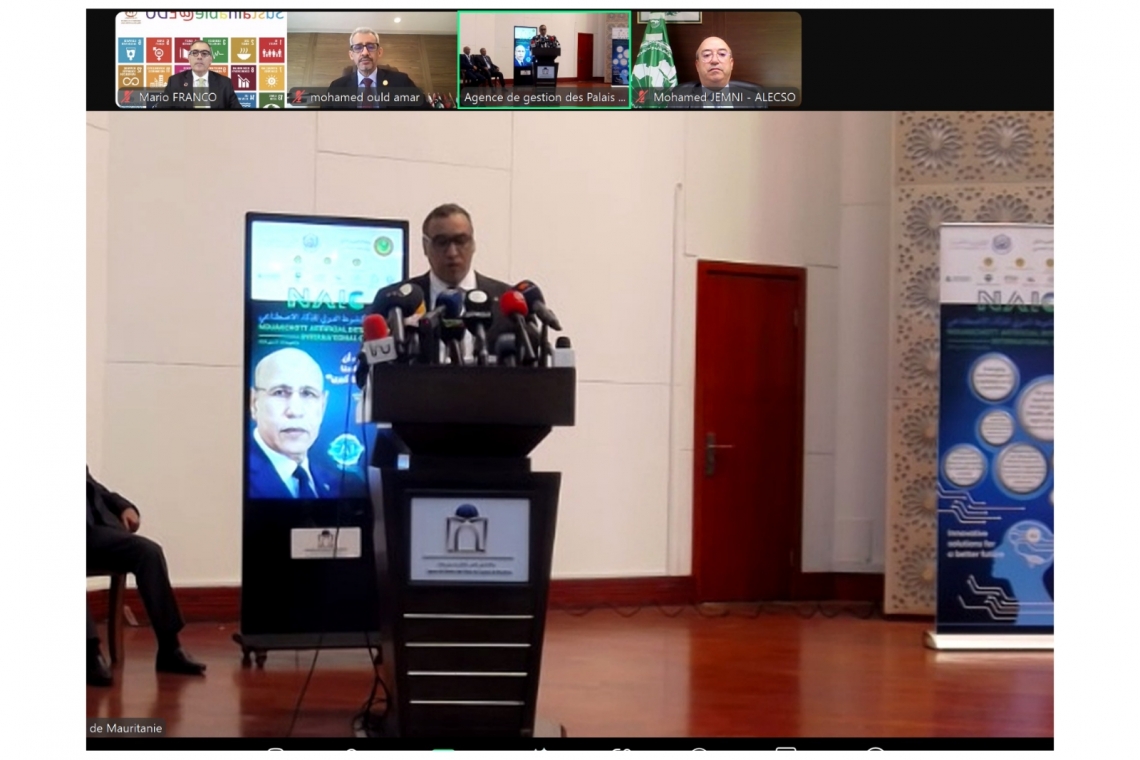The Arab League Educational, Cultural and Scientific Organization (ALECSO) took part in the Nouakchott International Summit on Artificial Intelligence, held on May 26–27, 2025. The Summit was held under the patronage of H.E. Mr. El Moctar Ould Djay, Prime Minister of Mauritania, and H.E. Dr. Yacoub Ould Moine, Minister of Higher Education and Scientific Research. It brought together experts, decision-makers, and researchers from across the Arab world.
Addressing the Summit virtually, H.E. Dr. Mohamed Ould Amar, Director-General of ALECSO, expressed his thanks and gratitude to Mauritania for organizing this prominent technological event. He stressed that AI is a strategic priority in ALECSO’s programs, as it offers an unprecedented opportunity to advance comprehensive development in the Arab region. He highlighted ALECSO’s pioneering initiative in launching the “ALECSO Charter on AI Ethics,” a reference document promoting the responsible and equitable use of AI, while safeguarding human dignity and respecting cultural specificities.
The Director-General announced the signing of a tripartite agreement between ALECSO, the Mauritanian Ministry of Higher Education and Scientific Research, and Millennium@EDU Sustainable Education. The agreement aims to establish a national computer manufacturing line to support digital and educational inclusion in Mauritania; thereby positioning the country on the technological industry map of Africa and the Arab world.
The Director-General commended the strong partnership between ALECSO and Mauritania, which has yielded multiple initiatives in the fields of culture, education, and scientific research. He also hailed Mauritania's leading role in driving technological dialogue in the region.
During the Summit, Dr. Mohamed Al-Jemni, Director of ICT at ALECSO, delivered a presentation titled “The Digital Empowerment Initiative for Mauritania: Toward a National Computer Industry”. He outlined the initiative’s main components and developmental dimensions, as well as its importance in enhancing digital sovereignty by enabling every household, school, and institution in Mauritania to have locally manufactured computers.



